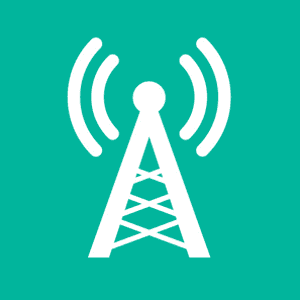Best Business Phone Service in Detroit, ME
Despite the surge of smartphones, social media app, people still look for a telephone number when they want to contact a business. To ensure you maintain connection with current and potential customers, choosing the right telephone service provider for your Detroit, ME business should be a priority. It is extremely beneficial to have a phone service that keeps you connected the old fashioned way. Because this is such an important part of customer contact, you want a service that is not only affordable and reliable, but you also need one that provides all the features you need to incorporate into your business. Compare the best small business phone service providers in Detroit, ME at MyRatePlan below.
| Provider | Plan Details | Monthly Rate* | |
|---|---|---|---|
 |
RATED #1 BY INDUSTRY EXPERTS
|
$19.99
|
Details

142 Reviews |
 |
Business phone service - no internet required
* 8.3% discount if paid for the year upfront |
$17.41*
|
Details

7 Reviews |
.png&contenttype=png) |
FULL-FEATURED CLOUD PHONE SYSTEM
* Rate/Min: $0.00 |
$9.95*
|
Details

2 Reviews |
 |
Smarter VoIP. Rated #1 in Customer Support
* Price based on a min. 12-month contract. |
$18.00*
|
Details

100 Reviews |
 |
Alliance Phone Service
* 12% discount for subscribing and paying for a year upfront |
$19.97*
|
Details

13 Reviews |
_4.png&contenttype=png) |
The phone system built to do business anywhere
* $5 per additional user |
$19.00*
|
Details

1 Reviews |
_2.png&contenttype=png) |
Get 99.99% network reliability with Fios.
* Per month. Plus taxes, fees and equipment charges. |
$69.00*
|
Details

11 Reviews |

What is Detroit, ME Business VoIP Phone Service?
VoIP stands for Voice Over Internet Protocol. It is the most recent type of phone service offered in Detroit, ME. The service has existed for around 10 years and has become more mainstream because more enterprises are switching to this technology. The VoIP technology uses the internet as a medium of transmission for telephone calls. Therefore, analog phone lines are not required. It has been observed that smaller start-ups are likely to use VoIP services for their business communication needs. Both VoIP and the traditional Public Switched Telephone Network (PSTN) have good call quality. It is essential to have good business internet connectivity to have reliable VoIP call quality. MyRatePlan Internet Speed Test enables you to check whether your current internet connectivity supports VoIP.
VoIP and PSTN differ on how the calls are carried. PSTN uses analog signals as the mode of transmission. However, VoIP digitizes the frequency signals and sends them through the internet. It is easier and cheaper to send data using VoIP than the traditional phone network. Therefore, you can make and receive calls at fewer costs. When making long distance or international calls, VoIP service providers charge less than traditional telephone companies. Many VoIP providers have a flat rate package that enables their customers to have an unlimited amount of calls to particular destinations without worrying about the per minute charges.
In Detroit, ME, VoIP services come with many features that will benefit your business. VoIP services enable you to enjoy many different features like ring groups, multiple extensions, voicemail with remote access, fax to email, caller ID, voicemail to email, and call forwarding.
Most of the VoIP providers in Detroit, ME, offer package plans that are designed to suit the needs of all sizes of businesses. It does not matter whether you are a large conglomerate with thousands of extensions or a small firm of five lines because there will always be a VoIP service for you.

Selecting The Best Business Phone Service Provider in Detroit, ME
The VoIP industry is highly competitive. Although the broad menu of choices may seem overwhelming to you at times, it is possible to leverage the competitive nature of the market to your benefit.
The initial step for narrowing down your choice is determining exactly what your needs are. It is important to know the exact number of lines you will need and what features you need to make your business run smoothly on a daily basis. Your budget will also come into play so you'll need to know exactly what you can afford. Also, be mindful of your plans for future expansion and what phone services you will need when that expansion is completed.
Information about Detroit, ME VoIP providers is readily available. Take the time to research their prices and the services that they offer. Get a feel for their reputation also. Keep in mind that your phone system is the heart of your company's communication infrastructure and that that infrastructure is only as good as the company you choose. You want to go with a company that has proven to be highly reliable and service-oriented.

What About Traditional Business Phone Service in Detroit, ME?
Although VoIP has become very popular in Detroit, ME, many businesses still use a traditional PSTN phone service. When this type of service is used, calls are transferred through a public switched telephone network, and the PSTN is accessible nationwide. The network for a traditional phone service is comprised of telephone lines, mobile networks, satellites and cables. The PSTN was actually the first phone network created, and it has been in use for almost 100 years.
The cost of making calls with a PSTN service is more expensive than VoIP because the infrastructure for the network requires expensive maintenance. Since the PSTN is analog, it's not very good at sending data over long distances.
Any time a call is made with a PSTN service, the data must stop at several points along the network, and the data must flow through equipment that is owned by several different companies, which can make calls made with the service significantly more expensive. Although many parts of the system have been converted to digital components, the last part of the PSTN network is analog.

PBX and Analog Phone Systems in Detroit, ME
The majority of Detroit, ME businesses will use a PBX, or private branch exchange, which allows different internal calling features like personal extensions or conference calls. This technology allows the organization of - and flow of - calls among internal and external users to your PBX, and improves the productivity of everyone as they're able to have their line.
A traditional PBX using traditional PSTN technology can be either located on your Detroit, ME premises or it can be hosted remotely at some other location - but keep in mind that this kind of infrastructure has a huge price tag. The various pieces of equipment and technology required to consume a PBX at your business will start in the $1000 range and go up from there depending on the depth and breadth of your needs - while installation, configuration, and maintenance are additional to these original costs. This manual labor can be achieved by your in-house asset - should you have one capable of such things - or this work can be outsourced to a third-party professional, but these charge $100 per hour or more.
Another major drawback of traditional PBX systems is that the hardware involved can limit the amount of lines and extensions that are available - meaning that, as your business grows, you'll be looking at a significant amount of additional costs to purchase and then install, configure and maintain even more expensive hardware.
Like all physical hardware, PBX systems are likely to experience breakdowns or other system issues that can be costly to have repaired on an emergency schedule. They may also face obsolescence every few years and need to be replaced by better, more efficient systems.
Find Business Phone Service Providers in
- East Newport, ME
- Waterville, ME
- Albion, ME
- Liberty, ME
- Dixmont, ME
- Sandy Point, ME
- Harmony, ME
- Morrill, ME
- Orrington, ME
- Canaan, ME
- Corinna, ME
- Brewer, ME
- China Village, ME
- Hudson, ME
- Bangor, ME
- Kenduskeag, ME
- Clinton, ME
- Palermo, ME
- Frankfort, ME
- Monroe, ME
- Athens, ME
- Freedom, ME
- Saint Albans, ME
- Stetson, ME
- Cambridge, ME
- Pittsfield, ME
- Burnham, ME
- Palmyra, ME
- Stockton Springs, ME
- Garland, ME
- Belfast, ME
- Charleston, ME
- Levant, ME
- Newport, ME
- Hinckley, ME
- Winterport, ME
- Madison, ME
- Hampden, ME
- North Vassalboro, ME
- Thorndike, ME
- Sangerville, ME
- Troy, ME
- Solon, ME
- Norridgewock, ME
- Exeter, ME
- Fairfield, ME
- Skowhegan, ME
- Vassalboro, ME
- Plymouth, ME
- Brooks, ME
- Bradford, ME
- Carmel, ME
- Etna, ME
- Corinth, ME
- Dexter, ME
- Shawmut, ME
- Hartland, ME
- Bucksport, ME
- Searsport, ME
- East Vassalboro, ME
- Searsmont, ME
- Unity, ME
- South China, ME
- Smithfield, ME
ZIP Codes in Best Detroit, ME
- 04929


 Menu
Menu